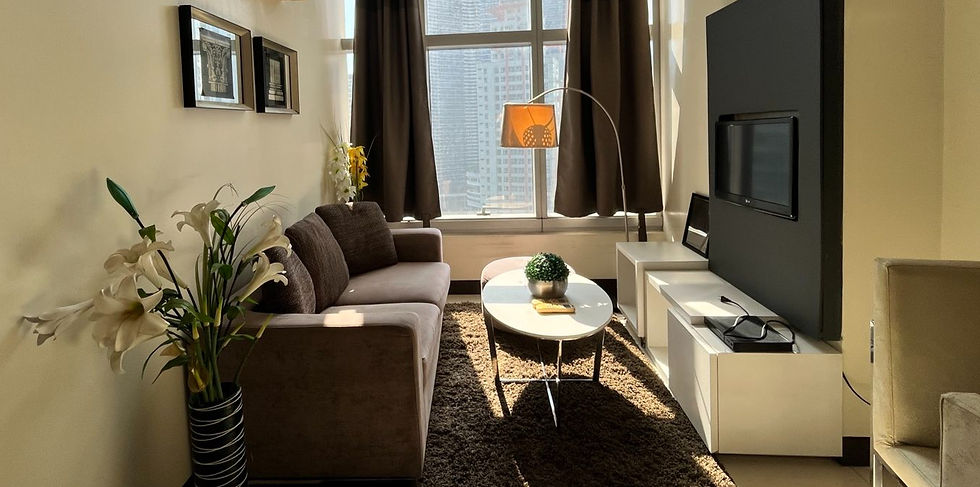Philippine Real Estate Rental Manual: 3 Key Points to Stay Safe and Enjoy
- bedandgoinc
- 2024年10月1日
- 読了時間: 3分
更新日:2024年10月2日
Date: October 1, 2024
Navigating the rental market in a new country can be a complex affair, marked by the need to understand local laws and customs. In the Philippines, where the allure of diverse cultures and landscapes attracts many expatriates and locals alike, renting an apartment involves several critical considerations. From legal safeguards provided by national laws to practical aspects of selecting the right neighborhood, prospective renters must equip themselves with knowledge to make informed decisions.
Entering the rental market in the Philippines means engaging with a set of unique protocols and legal frameworks designed to protect both landlords and tenants. The Rent Control Act (Republic Act 9653) is a cornerstone of these protections, establishing clear guidelines and obligations for all parties involved in the rental process. This legislation not only aims to make renting more affordable but also more secure, by dictating terms that prevent arbitrary rental increases and unfair eviction practices. Understanding these protections is crucial for anyone looking to rent in the Philippines, ensuring a fair and stable arrangement that benefits both the tenant and the landlord.
1. Selecting the Ideal Location
The choice of location is perhaps the most significant factor affecting your rental experience in the Philippines. Urban areas like Metro Manila, Cebu City, and Davao are popular for their vibrant lifestyles and proximity to major business districts, but they also come with higher rental prices. In contrast, locations like Palawan or Baguio offer a quieter existence with potentially lower costs. When selecting a location, consider factors such as:
Safety and Security: Research the safety of different neighborhoods, considering both petty and serious crime rates.
Proximity to Essentials: Look for easy access to workplaces, schools, medical facilities, and shopping centers. This is particularly important in cities where traffic can be a significant issue.
Lifestyle Needs: Depending on your personal or family needs, you might prioritize areas with parks, cultural centers, or nightlife.
Balancing these factors within your budget constraints will guide you to the best possible living situation suited to your lifestyle and financial capabilities.
2. Understanding and Negotiating Your Rental Agreement
The rental agreement is a crucial document that outlines the terms of your tenancy. It's essential to understand every clause before committing to a rental property. Here are some key components to scrutinize:
Lease Duration: Determine whether the lease terms are flexible and if there are penalties for early termination.
Financial Terms: Verify all costs involved, including rent, deposits, and any hidden fees like maintenance charges or utility bills.
Property Rules and Regulations: Understand what is allowed in terms of modifications or decorations and the policy on pet ownership.
Repair and Maintenance: Clarify who is responsible for maintenance and repairs. It’s important to agree on how these issues are handled before they arise.
Before signing, it's also advisable to do a thorough walkthrough of the property to identify any pre-existing damages or necessary repairs, documenting these meticulously to avoid future disputes.
3. Legal Protections Under Philippine Law
The Rent Control Act provides several essential protections that are designed to keep the rental market fair and equitable. Key features of this act include:
Rent Increase Limitations: The law caps annual rent increases at 7% for certain residential units, preventing sudden and unreasonable hikes.
Eviction Protection: Tenants are safeguarded against eviction under most circumstances unless they violate the terms of the lease or fail to pay rent.
Continuity of Lease Agreements: New owners of a rental property are required to honor previously established rental agreements, providing continuity and security for tenants.
Additional legal resources and tenant advocacy groups are available for those who face legal challenges or need guidance on their rights and responsibilities under Philippine law.
Renting an apartment in the Philippines can be a fulfilling venture, offering an opportunity to immerse oneself in the rich cultural tapestry of the country. However, it requires careful preparation and an understanding of both legal protections and practical realities. By carefully choosing your location, diligently reviewing your rental agreement, and familiarizing yourself with your legal rights, you can secure a pleasant and secure living environment. This thorough approach not only mitigates potential issues but also enhances your overall experience, allowing you to enjoy the unique lifestyle options that the Philippines has to offer.
Reference:













コメント